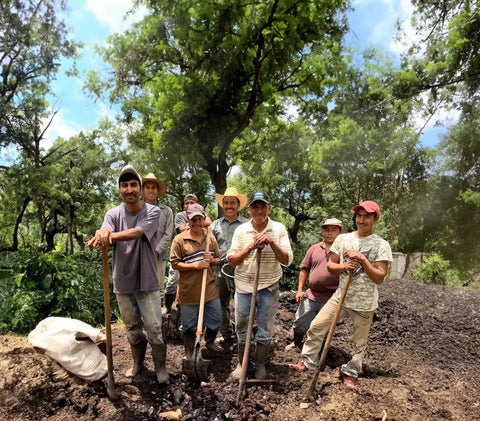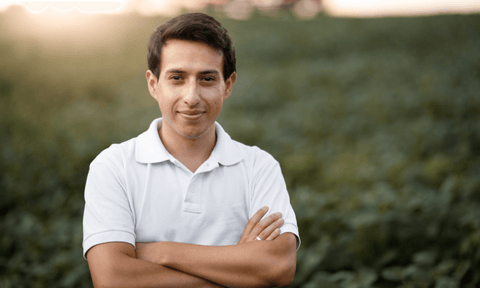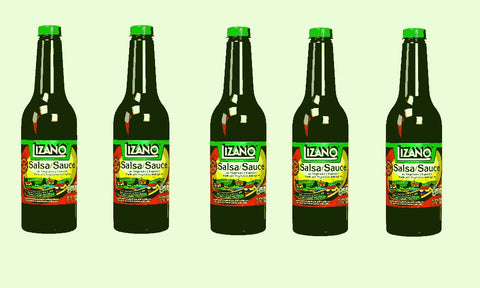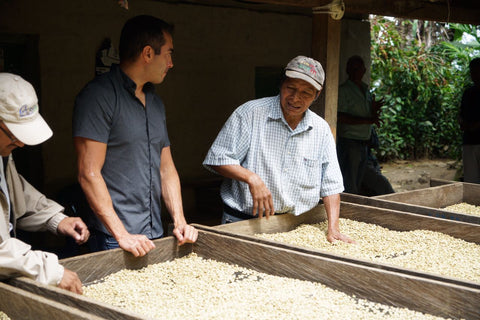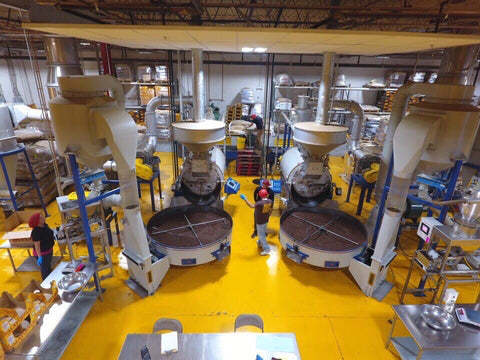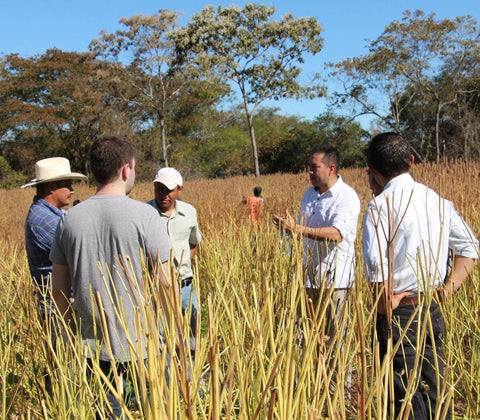ORGULLO LATINO
Reading time: 4 minutes
Why Olga Cuéllar Gomez is writing her own definition of sustainable coffee
Mercedes Sempe speaks with the founder and CEO of Promising Crops, Olga Cuéllar Gomez, about the role of social entrepreneurs in agriculture.
Olga Cuéllar Gomez dreams of a better world – one in which agricultural communities are treated more fairly and the hard work of producers is truly recognized by all those along the supply chain.
It's a goal she has been actively turning into a reality with Promising Crops, a business she runs alongside her father, brother, and partner, which with a sustainable focus, provides services to the agricultural sector.
As a psychology major, agriculture may not seem like the most obvious fit. But farming and farmers, specifically coffee producers, have always been a part of Olgas life.
Having grown up in Quindio, a coffee-growing region of Colombia, she has always been surrounded by it. However, it was her father who sparked her lasting interest in the industry.
"My father has been working in the coffee sector for more than 40 years," she says. "It was through his work that I became aware of the vulnerable communities in rural areas and decided to study them in more detail."
After majoring in social psychology in Colombia's capital, Bogotá, she travelled to Brazil and Peru. It was during these travels that she discovered a contradiction: globalization had launched Latin American products, including coffee, onto the world stage; but, in most cases, producers were still excluded from the economic and technological benefits it brought.
It was then that Olga decided to do something about it.

Promising Crops and Women In Coffee
In her dissertation thesis, "Coffee produced by women in Cauca, Colombia: Where has Juanita Valdez been?", Olga explored an important topic.
She'd noticed that while women contributed as much as 70% of the fieldwork on coffee farms, they rarely occupied decision-making roles nor did they receive the same recognition as their male counterparts.
To illustrate her point, she used Colombia's national coffee icon – Juan Valdez – to highlight how the role of female coffee farmers is systematically ignored.
"People usually see producing estates as belonging to men," Olga says. "But they are family units and every member plays a role in ensuring production is successful. When we think about coffee, we think about Juan Valdez and his mule – but where's Juanita? Juanita is always there, it's just that many of us cannot see her."
Her focus on the role of women in the coffee-production chain helped shape her vision for Promising Crops. Established in 2020, the company aims to empower families, women, and vulnerable communities in the agricultural sector.
Being the head of the company, Olga is in daily contact with clients and spearheads the creation of strategies to address clients' concerns, including how to improve productivity while being sustainable.
That said, "being sustainable" isn't as simple as it may sound.
Olga explains that, in broader terms, sustainability refers to preserving what you have now so that you can make use of it in the future. In that sense it goes beyond the environmental connotation typically associated with it.
"Understanding production steps, quality standards, expenses, prices and creating spaces of communication between different parts of the production chain – all of that ensures that the production processes remain sustainable," Olga says.
However, Olga points out that companies define the word according to their own policies, which also means that what working in sustainability entails can differ between companies.
When she worked at Sustainable Harvest Coffee Importers, for example, Olga's job was focused on ensuring continuity in the relationships with producers.
Yet while working as sustainability manager and then sustainability director at S&D Coffee & Tea, sustainability meant helping producers maintain an ecological and economic balance in their production.

Looking Ahead
Today, Olga is writing her own definition of sustainability – one she hopes is attainable for all communities.
"Nowadays, sustainability is so complex and entails so many steps that a lot of the money that could go to the people end up being used just to comply with overly complicated processes," she explains.
"I would like to see communities and companies develop a sense of trust in one another, so that policies are sensitive to the needs of the communities and match the realities of rural communities while still keeping quality and sustainability standards."
This goal is one she shares with her business partners.
"We all desire a more just world, one in which relegated communities have a voice," Olga says. "We realized we wanted to change the countryside. We may be small, but we want to empower rural communities so that they can progress."
It is no easy feat but Olga is confident that she is on track to drive change.
Until then, Olga enjoys working with local producers. "Whenever I visit agricultural communities, they are always welcoming," she says. And that is what she enjoys most about her job.
"When I visit a producer, I do not go to the company, I go to their homes. That can be invasive but they have always received me with open arms and hearts. They share their knowledge about life, and I always take that home with me."


